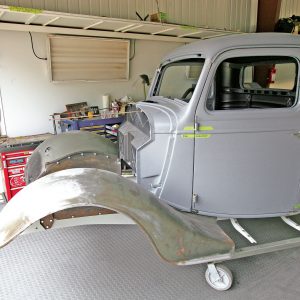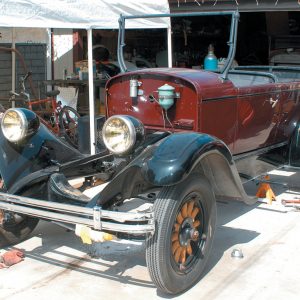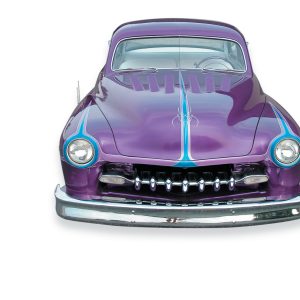Engine
The small-block Chevy has enjoyed a long, happy life. Sure, the current LS1/LS6 version is quite far removed from the original, but thousands upon thousands of little mouse motors continue to provide the sole means of motivation to everything from stationary irrigation pumps to Le Mans-winning C5R Corvettes. Naturally, this list also includes all manner of boulevard bruisers, street stompers and resto rockets. Heck, we’ve even seen little Chevys under the hood of “Brand X” machinery. The continued popularity of the small-block Chevy is not surprising. Take a look at the combination of power potential and parts availability and multiply that by the cost quotient, and you have the makings of a real success story. Add to this equation the millions of project motors just sitting around junkyards throughout the world, and it is easy to see why enthusiasts continue to embrace the mighty mouse motor as the performance powerplant of choice.
Okay, we weren’t quite that naive about what we read regarding upgrading to 1.6 rockers on our small-block Chevy for the first time, but it was close.
The engine in question was a decent runner with 30,000 miles on the mild-performance rebuild. The rebuilt engine was purchased used, and among its selling points were 0.030-over 9.5:1 pistons, moly rings, 1.5 roller rockers, a Performer RPM intake and a brand-new Holley 750cfm carburetor. The cam wasn’t a perfect match to the torque converter used in the previous installation nor was the final-drive gear ratio. As a result, the owner planned on stepping down on the cam chart to a Comp 286H-10 cam, which came with the engine in its original box. Also included were a brand-new factory Z28 oil pan and a factory timing chain cover to replace the cheap chrome pieces. For $300, the engine package was a deal, and one we couldn’t pass up. We sold the aforementioned chrome pieces and matching valve covers for $50, getting us the engine at the bargain price of $250, and we still had the new cam and lifters on our shelf.
What makes more power: carburetors or computers? While the ultimate answer is that a sophisticated electronic fuel-injection system will virtually always outpower a carburetor, the real question may be whether the power gains are worth the extra expense and complexity of installing an EFI system.







